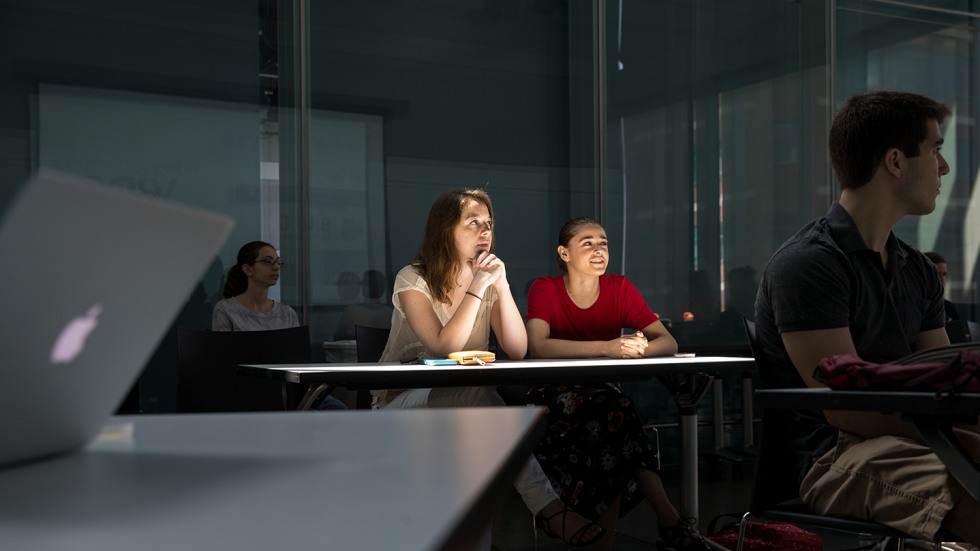PROVIDENCE, R.I. [Brown University] — On Thursday evening, 11 student entrepreneur teams will take to the stage to deliver their best elevator pitches to the Brown community. The pitches — and the ventures they’ll promote — were meticulously honed over the summer via Brown’s Breakthrough Lab, or B-Lab, an intensive accelerator program that supports student entrepreneurs as they develop startups.
Jason Harry, B-Lab director and an associate professor of the practice in the School of Engineering, said the program exemplifies the University’s distinct action-oriented approach to entrepreneurship — particularly since B-Lab’s integration into the Jonathan M. Nelson Center for Entrepreneurship, launched in 2016 with the mission to make entrepreneurship an essential part of the Brown experience.
“The goal of B-Lab is to develop world-class entrepreneurs and high-quality ventures of all types that can effect scalable solutions to serious problems,” Harry said. “But here at Brown, we also think of entrepreneurship as a thought process, a way to think and act in the real world even outside the context of startup companies.”
Now in its third year, B-Lab offers nuts-and-bolts entrepreneurship sessions led by Brown faculty and external practitioners — everything from writing a business plan to creating a brand to finding, and retaining, customers. The program provides sector-specific business and technical support, as well as targeted mentorship for each team from successful entrepreneurs in the field — often Brown alumni. Members of the venture teams must include at least one student from Brown or RISD, though teams often include members from other schools as well. Undergraduates and graduate students from any discipline can apply. Brown and RISD students receive a summer stipend, enabling students from across the socioeconomic spectrum to focus full time on their venture.
B-Lab ventures span a wide range of disciplines and types, from social enterprise and nonprofit endeavors to companies creating innovative software, healthcare and retail products. To apply, students must articulate an original and clearly defined venture idea and make the case that there is market need for that idea — but the teams enter the accelerator at varying places of development.
Some successful B-Lab applicants were already deep into their ventures — like the students behind Brevite, a line of adventure-ready camera backpacks, who were already selling their product online but were looking to scale up. Others were just past the idea stage — like the team members at Che!, a quinoa-based snack food, who were still testing and refining their product in a home kitchen.
At Thursday’s session, B-Lab teams will give their three-minute pitches to an audience of Brown community members as well as potential investors and some of the many mentors who guided B-Lab students over the summer.
They may hear how by the end of the summer, Brevite had launched a major Kickstarter fund for its next product line and continued to expand its sales globally or that the founders of Che! had secured a commercial baking partner and their first local retail outlets — just two examples of the significant acceleration made by many of this year’s ventures.
In the years ahead, some B-Lab ventures will take off, and some will crash. But the B-Lab experience is about more than strictly success or failure, Harry said. Each team emerged at the end of the summer with not just a set of essential entrepreneurial tools tailored to their particular venture, but also with a mindset that will prepare them for success regardless of where their future takes them.
“B-Lab gives students actionable life skills that transcend entrepreneurship and that they will return to again and again,” Harry said. “This work is immensely challenging and complex. And that’s what the real world is like, too. They will carry this experience with them into whatever they do even if they have no intention of ever doing a startup again.”
